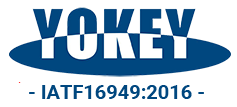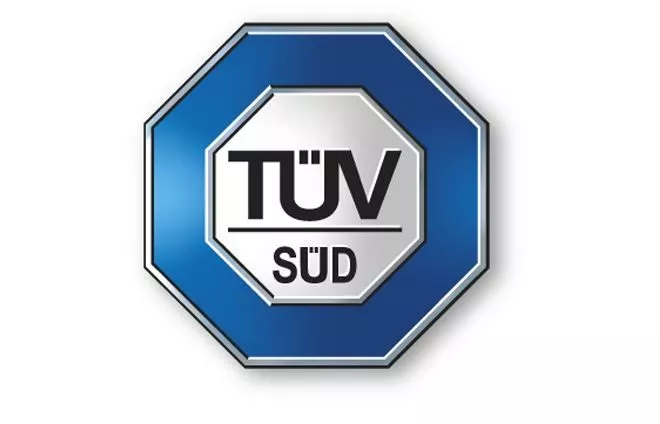Subtitle: Why Seals in Your Faucets, Water Purifiers, and Piping Systems Must Have This “Health Passport”
Press Release – (China/August 27, 2025) - In an era of heightened health and safety awareness, every drop of water we consume undergoes unprecedented scrutiny along its journey. From vast municipal water supply networks to household kitchen faucets and office water dispensers, ensuring water safety through the “last mile” is paramount. Within these systems, there exists a little-known yet critical guardian—rubber seals. As a globally leading manufacturer of rubber seals, Ningbo Yokey Co., Ltd. delves into one of the most crucial certifications for drinking water safety: KTW certification. This is far more than a certificate; it serves as a vital bridge connecting products, safety, and trust.
Chapter 1: Introduction—The Hidden Guardian at Connection Points
Before exploring further, let’s address the most fundamental question:
Chapter 2: What is KTW Certification?—It’s Not Just a Document, But a Commitment
KTW is not an independent international standard; rather, it is a highly authoritative health and safety certification in Germany for products related to drinking water. Its name derives from the acronyms of three major German institutions responsible for evaluating and approving materials in contact with drinking water:
- K: Chemicals Committee for the Evaluation of Materials in Contact with Drinking Water (Kommission Bewertung von Werkstoffen im Kontakt mit Trinkwasser) under the German Gas and Water Association (DVGW).
- T: Technical-Scientific Advisory Board (Technisch-Wissenschaftlicher Beirat) under the German Water Association (DVGW).
- W: Water Working Group (Wasserarbeitskreis) under the German Environmental Agency (UBA).
Today, KWT generally refers to the approval and certification system led by the German UBA (Federal Environment Agency) for all non-metallic materials in contact with drinking water, such as rubber, plastics, adhesives, and lubricants. Its core guidelines are the KTW Guideline and the DVGW W270 standard (which focuses on microbiological performance).
Simply put, KTW certification acts as a “health passport” for rubber seals (e.g., O-rings, gaskets, diaphragms), verifying that during prolonged contact with drinking water, they do not release harmful substances, alter the water’s taste, odor, or color, and can inhibit the growth of harmful microorganisms.
Chapter 3: Why is KTW Certification Critical for Rubber Seals?—Invisible Risks, Tangible Assurance
Average consumers might assume water safety concerns only the water itself or filtration systems. However, even the smallest rubber seals at connection points, valves, or interfaces can pose potential risks to drinking water safety.
- Risk of Chemical Leaching: The manufacturing process of rubber products involves various chemical additives, such as plasticizers, vulcanizing agents, antioxidants, and colorants. If inferior materials or improper formulations are used, these chemicals may gradually leach into the water. Long-term ingestion of such substances could lead to chronic health issues.
- Risk of Altered Sensory Properties: Substandard rubber might release an unpleasant “rubbery” odor or cause cloudiness and discoloration in water, significantly compromising the drinking experience and consumer confidence.
- Risk of Microbial Growth: Certain material surfaces are prone to bacterial attachment and proliferation, forming biofilms. This not only contaminates water quality but may also harbor pathogens (e.g., Legionella) that pose direct threats to public health.
KTW certification rigorously addresses all these risks through a series of stringent tests. It ensures the inertness of seal materials (no reaction with water), stability (consistent performance over long-term use), and antimicrobial properties. For manufacturers like Ningbo Yokey Co., Ltd., obtaining KTW certification signifies that our products meet some of the highest global standards in drinking water safety—a solemn commitment to our customers and end consumers.
Chapter 4: The Path to Certification: Rigorous Testing and a Lengthy Process
Acquiring a KTW certificate is no simple feat. It is a time-consuming, labor-intensive, and costly process, reflecting Germany’s renowned meticulousness.
- Preliminary Review and Material Analysis:
Manufacturers must first submit a detailed list of all product components to a certification body (e.g., a UBA- or DVGW-approved laboratory), including base polymers (e.g., EPDM, NBR, FKM) and the precise chemical names, CAS numbers, and proportions of every additive. Any omission or inaccuracy will result in immediate certification failure. - Core Testing Procedures:
Material samples undergo weeks of immersion testing in laboratories that simulate various extreme drinking water conditions. Key tests include:- Sensory Testing: Evaluating changes in the water’s smell and taste after material immersion.
- Visual Inspection: Checking for water turbidity or discoloration.
- Microbiological Testing (DVGW W270): Assessing the material’s ability to inhibit microbial growth. This is a standout feature of KTW certification, setting it apart from others (e.g., ACS/WRAS) with its exceptionally high standards.
- Chemical Migration Analysis: The most critical test. Using advanced instruments like GC-MS (Gas Chromatography-Mass Spectrometry), the water is analyzed for any leaching harmful substances, with their concentrations precisely quantified. The total amount of all migrants must remain well below strictly defined limits.
- Comprehensive and Long-Term Assessment:
Testing is conducted under multiple conditions—varying water temperatures (cold and hot), immersion durations, pH levels, etc.—to simulate real-world complexities. The entire testing and approval process can take 6 months or longer.
Thus, when you choose a seal with KTW certification, you are selecting not just a product, but an entire validated system of material science and quality assurance.
Chapter 5: Beyond Germany: KTW’s Global Influence and Market Value
Although KTW originated in Germany, its influence and recognition have expanded worldwide.
- Gateway to the European Market: Throughout the EU, although the European unified standard (EU 10/2011) will eventually replace it, KTW remains the preferred or key reference standard for many countries and projects due to its longstanding history and rigorous requirements. Holding KTW certification is virtually equivalent to gaining access to Europe’s high-end water market.
- Universal Language in Global High-End Markets: In North America, the Middle East, Asia, and other regions, numerous high-end water purifier brands, water engineering firms, and international project contractors regard KTW certification as a critical indicator of a supplier’s technical capability and product safety. It significantly enhances product value and brand reputation.
- Robust Compliance Assurance: For downstream manufacturers (e.g., of water purifiers, valves, piping systems), using KTW-certified seals can greatly streamline the process of obtaining local water safety certifications (e.g., NSF/ANSI 61 in the U.S., WRAS in the UK), reducing compliance risks and time costs.
For Ningbo Yokey Co., Ltd., investing resources in obtaining multiple international certifications, including KTW, is not about pursuing a piece of paper. It stems from our core corporate mission: to be the most trusted sealing solution partner for global customers. We recognize that our products, though small, carry significant safety responsibilities.
Chapter 6: How to Verify and Select? Guidance for Partners
As a purchaser or engineer, how should you verify and choose qualified KTW-certified products?
- Request Original Certificates: Reputable suppliers should provide copies or electronic versions of KTW certificates issued by officially recognized bodies, complete with unique identification numbers.
- Verify Certification Scope: Scrutinize certificate details to confirm that the certified material type, color, and application temperature range (cold/hot water) match the product you are purchasing. Note that each certification typically applies to one specific formulation.
- Trust but Verify: Consider sending the certificate number to the issuing authority for validation to ensure its authenticity, validity, and that it remains within the expiration period.
All relevant products from Ningbo Yokey Co., Ltd. not only fully comply with KTW certification but are also supported by an end-to-end traceability system—from raw material intake to finished product shipment—guaranteeing consistent quality and safety for every batch.
Conclusion: Investing in KTW is Investing in Safety and the Future
Water is the source of life, and ensuring its safety is a relay race from source to tap. Rubber seals serve as an indispensable leg of this race, and their importance cannot be overlooked. Choosing KTW-certified seals is a strategic investment in product safety, user health, brand reputation, and market competitiveness.
Ningbo Yokey Co., Ltd. remains committed to upholding respect for science, adherence to standards, and dedication to safety. We continuously provide customers with high-quality sealing products that meet and surpass the highest global standards. We invite you to join us in prioritizing water safety details, selecting authoritatively certified components, and collaborating to deliver pure, safe, and healthy water to every household worldwide.
About Ningbo Yokey Co., Ltd.:
Ningbo Yokey Co., Ltd. is a leading enterprise focused on the R&D, manufacturing, and sales of high-performance rubber seals. Our products are widely used in water treatment, drinking water systems, food and pharmaceuticals, automotive industry, and other sectors. We maintain a comprehensive quality management system and hold multiple international certifications (e.g., KTW, NSF, WRAS, FDA), dedicated to providing customers with safe, reliable, and customized sealing solutions.
Post time: Aug-27-2025

